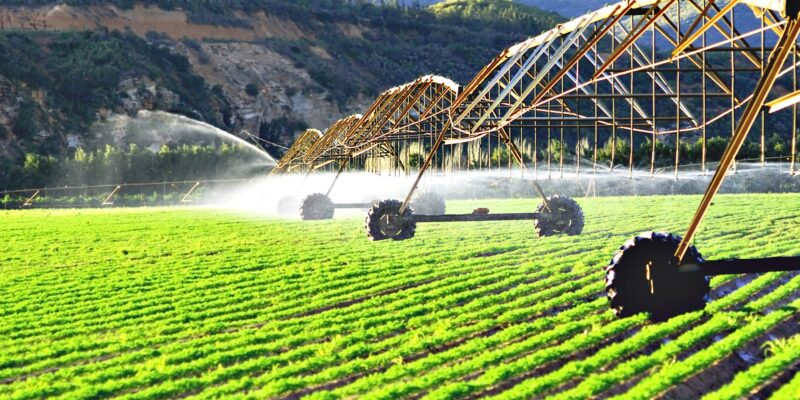
As sustainability becomes a central focus in agriculture, new and innovative products are emerging that align with environmentally friendly practices. In 2024, several sustainable agricultural products are gaining attention for their benefits to both the environment and consumers. Here’s a look at some of the top sustainable agricultural products to consider trying this year:
1. Organic Fruits and Vegetables
Organic fruits and vegetables are grown without synthetic pesticides or fertilizers, making them a healthier choice for both the environment and consumers. Organic farming practices promote soil health and reduce pollution, offering a more sustainable alternative to conventional produce. Look for locally sourced organic produce to support local farmers and reduce carbon footprints.
2. Plant-Based Proteins
Plant-based proteins, such as lentils, chickpeas, and various legumes, are becoming increasingly popular as sustainable alternatives to animal-based proteins. These products typically require fewer resources like water and land, and they have a lower carbon footprint. Additionally, they offer a range of health benefits and can be incorporated into a variety of dishes.
3. Edible Insects
Edible insects, such as crickets and mealworms, are emerging as a highly sustainable source of protein. Insects require significantly less land, water, and feed compared to traditional livestock. They also produce fewer greenhouse gases. Insects can be consumed directly or used in protein powders and snack bars, making them a versatile and eco-friendly option.
4. Regenerative Grains
Regenerative grains, such as ancient grains like quinoa, teff, and amaranth, are grown using methods that improve soil health and promote biodiversity. These grains often come from farms that implement regenerative agriculture practices, which focus on restoring and enhancing soil fertility and ecosystem health. They are nutrient-dense and offer a sustainable choice for consumers looking to diversify their grain intake.
5. Aquaponic and Hydroponic Produce
Aquaponic and hydroponic systems grow plants without soil, using nutrient-rich water instead. Aquaponics combines fish farming with hydroponics, creating a closed-loop system where fish waste provides nutrients for the plants, and plants help filter the water for the fish. Both systems use less water and space compared to traditional farming and can be used to grow a variety of fruits, vegetables, and herbs.
6. Sustainable Seafood
Sustainable seafood comes from fishing practices that do not deplete fish populations or harm marine ecosystems. Look for certifications from organizations such as the Marine Stewardship Council (MSC) or the Aquaculture Stewardship Council (ASC) when purchasing seafood. Sustainable options include responsibly farmed fish and shellfish, as well as species that are abundant and have minimal environmental impact.
7. Climate-Resilient Crops
Climate-resilient crops are bred to withstand extreme weather conditions such as droughts, floods, and heatwaves. These crops include varieties of grains, vegetables, and fruits that are developed to adapt to changing climate conditions while maintaining high yields. They contribute to food security by ensuring a stable supply of essential crops despite environmental challenges.
8. Algae-Based Products
Algae-based products, including spirulina and chlorella, are gaining popularity due to their high nutritional value and low environmental impact. Algae can be grown in controlled environments with minimal water and land use, and they are rich in proteins, vitamins, and minerals. These products can be used in smoothies, supplements, and as ingredients in various food items.
9. Alternative Sweeteners
Alternative sweeteners, such as stevia and monk fruit, are sustainable alternatives to refined sugars. These sweeteners are derived from natural sources and often require less land and water to produce compared to conventional sugar crops. They also have a lower glycemic index and can be used in a range of beverages and foods.
10. Sustainable Packaging Solutions
Sustainable packaging solutions, such as biodegradable materials and recyclable options, are becoming essential in the agricultural industry. Products packaged in compostable materials or made from recycled content help reduce waste and environmental impact. Supporting brands that prioritize sustainable packaging contributes to a circular economy and minimizes plastic pollution.
Conclusion
As the demand for sustainable products grows, the agricultural industry is responding with innovative solutions that benefit both the environment and consumers. By exploring and incorporating these top sustainable agricultural products into your lifestyle, you can contribute to a more eco-friendly and resilient food system. From organic produce to plant-based proteins and climate-resilient crops, these options offer a range of choices that align with sustainable practices and support a healthier planet.










